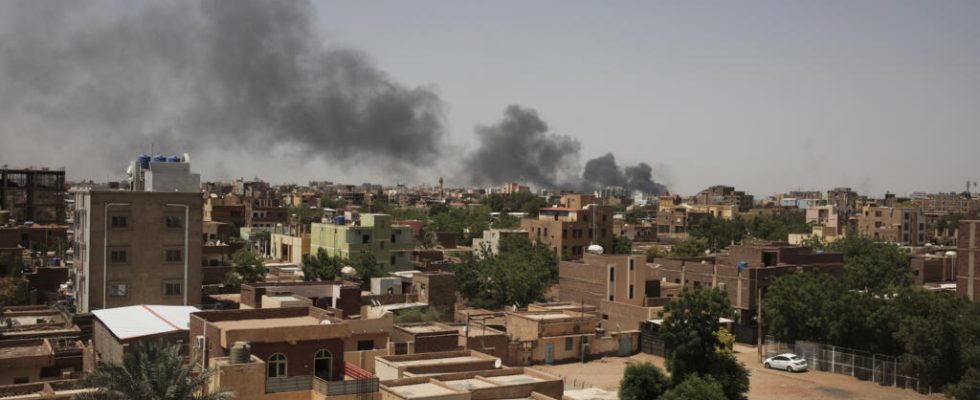In Sudan, the fighting continues despite a new truce announced Wednesday, May 3. In the capital, Khartoum, where the bulk of the fighting is taking place, hundreds of thousands of people are holed up in their homes. They stay either by choice or because they cannot afford to leave.
According to the UN, 100,000 people have already left the country and more than 330,000 people are displaced within Sudan itself. RFI was able to reach Israa Alnoor, 21. The young woman, as well as the members of her family, are entrenched in their house, in the center of Khartoum. They no longer know whether to hold on and stay or evacuate, as many friends around them have done.
” Many people left. There are very few people in our neighborhood. For example there are six houses around ours and only one is inhabited, the others are empty. We also considered leaving Khartoum but we decided to stay because leaving is a very difficult choice. For now, we can still provide the minimum we need to live, such as food. The idea of leaving is really very hard. We’re not sure it’s safe to leave and we don’t have a place to go. We have decided to stay here, but staying in our house is not a guarantee of safety either, because soldiers have come into the houses to rob or rape the women. We have packed things, packed a few bags and are waiting for the moment when we can no longer hold on. But as long as we can stay, we will stay “Israa tells us.
“Twitter is really useful to us”
Israa and her family do not leave their homes except to go get supplies. ” We hardly ever leave the house. Outside are the paramilitaries of the Rapid Support Forces. They are really scary, they are dangerous and heavily armed.It’s my cousin who lives with us with his family who comes out when we need something. he goes out with another family member and buys whatever they can find to limit outings, usually once a week. Fortunately, there are shops open around our house and we can still buy food, such as canned goods or cookies. That, we can find, but vegetables or meat, no, we can’t find it. We search on the Internet, we ask our friends or on Twitter. We post a message asking, for example, who lives around us, who has been out lately, how the security is and what stores are open in a particular area. Twitter is really useful to us! Today, we still manage to buy something to eat, but tomorrow it’s not sure. We don’t know when this will all end. »
Read also: “The situation is only getting worse”: in Chad, NGOs to the aid of Sudanese refugees from Koufroun
